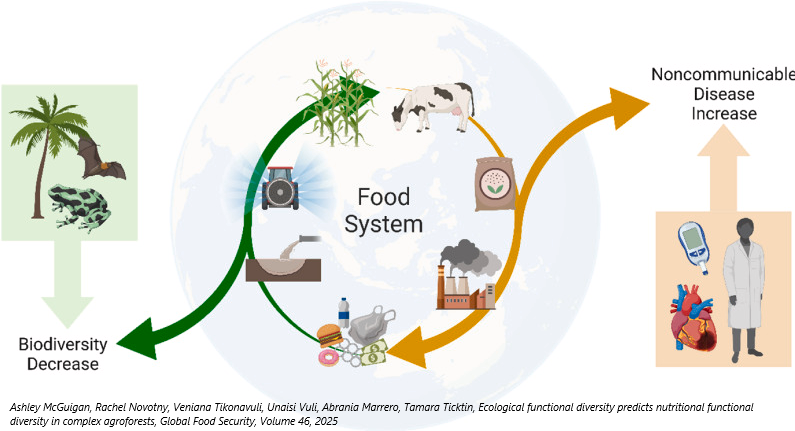
Biodiversity loss and rising noncommunicable disease incidences are among the greatest global challenges we face. These crises are deeply interconnected and shaped by varied food system dynamics, including the prioritization of large-scale, inexpensive food production, at the cost of externalized environmental and human health impacts. Climate change is expected to further exacerbate these challenges. Agroecological systems are increasingly promoted as a viable solution toward more resilient, nutritious, sustainable, and climate-adaptive food systems. However, the mechanisms linking biodiversity and climate sensitive management practices with potential nutritional contributions in these food production systems remain underexplored. In agroecosystems, the functional diversity of ecological traits supports resilience to disturbance and food security, while the functional diversity of nutritional traits influences the system's nutritional potential to support nutritional adequacy and human health. Using a trait-based framework, we quantified ecological and nutritional functional diversity in 48 Indigenous agroforests in Fiji. We found that agroforests with higher ecological functional diversity of response traits exhibit significantly greater nutritional functional diversity, suggesting that managing for ecological resilience may also enhance the nutritional potential of food production systems. These findings offer a novel empirical bridge between ecological function and nutrient provisioning, and highlight the importance of maintaining agrobiodiversity to support both environmental and human health in efforts to transform global food systems.














